Bridging the gap: Tech-enabled Education in Punjab :: February 2013
EDITORIAL
India’s Education System – Making a Grade
Message – Sikandar Singh Maluka, Education Minister, Punjab
Message – Kahan Singh Pannu, DGSE, Government of Punja
STATE FOCUS – PUNJAB
Pervesh Project: A Creative Learning Model in Primary Education of Punjab
ePunjab School Web Portal Brings Transparency in Education Department
Edusat Ensures Quality Education in Punjab Government Schools
Rajeev Sharma, Deputy State Project Director, Punjab Edusat Society
Punjab’s Initiative towards Creating Employment
“Quality Education is Punjab’s Focus”
HIGHER EDUCATION
Tablets: Expediting Teaching-Learning
ACADEMIA SPEAK
Tablets Battling Faculty Shortage in India
MJ Xavier, Director, IIM Ranchi
Reaping the Benefits of Demographic Dividend
VS Ramamurthy, Director, National Institute of Advanced Studies, Bangalore
CORPORATE DIARY
MP has an Edge Over Others in RTE
Rashmi Arun Shami, Commissioner-cum-Director, Rajya Shiksha Kendra (RSK) & Ex-Officio Secretary School Education, Government of Madhya Pradesh
DIGITAL LITERACY
Creating a Digitally Literate Nation
Dr Ashwini Kumar Sharma, Managing Director, National Institute of Electronics and Information Technology (NIELIT)
INDUSTRY SPEAK
Tablets: The Rise of Tablets
Naveen Rajlani, Senior Vice President and Head – School Division, Pearson Education India
The Right to Misinform, an Obligation to Keep Secrets, Frittering Away 10,000 crores, and Other Such Tales!
Manish Upadhyay, Co-Founder & Chief Evangelist, LIQVID; AmitavaMaitra, Independent Ed Tech Consultant
Why 2013 is the Most Defining Year for Education
Venguswamy Ramaswamy, Global Head, TCS iON
POLICY MATTERS
National Academic Depository of India
Dr Veera Gupta, Associate Professor, National University of Educational Planning and Administration, Delhi; Former Secretary, CBSE
EVENT REPORT
Pearson Education Services, NDTV Honour Teachers
Dr Shashi Tharoor, Union Minister of State for HRD
FEATURE
Industry-Academia Gap: Cementing Gaps to Make Tomorrow Employable
If your organisation is in the business of climbing trees, you need to hire squirrel, not a horse
Binoj Vasu, GEVP and Chief Learning Officer, Human Capital Management, YES Bank Ltd
Learning-by-Doing and Learning-while-Earning are the Ways to Bridge the Gap
Neeti Sharma, Vice President, TeamLease – IIJT
“Annual Rating and Accreditation of B-Schools will Help”
SY Siddiqui, National President, The National Human Resources Development Network (NHRDN) and COO-Administration (HR, Finance, IT & COSL), Maruti Suzuki India Ltd
“Manage Industry-Academic Alliances like an Investment Portfolio”
Lokesh Mehra, Director-Education Advocacy, Microsoft Corporation (India) Pvt Ltd
The Principle is Buyer Beware
TR Shastri, Dean, ICICI Manipal Academy
Conceptualise Training Programmes Keeping the Industry Requirements in Mind
Anu Senan, Saurabh Jain & Vivek Srinivasan, XLRI GMP Class of 2013
Pearson Education Services, NDTV Honour Teachers
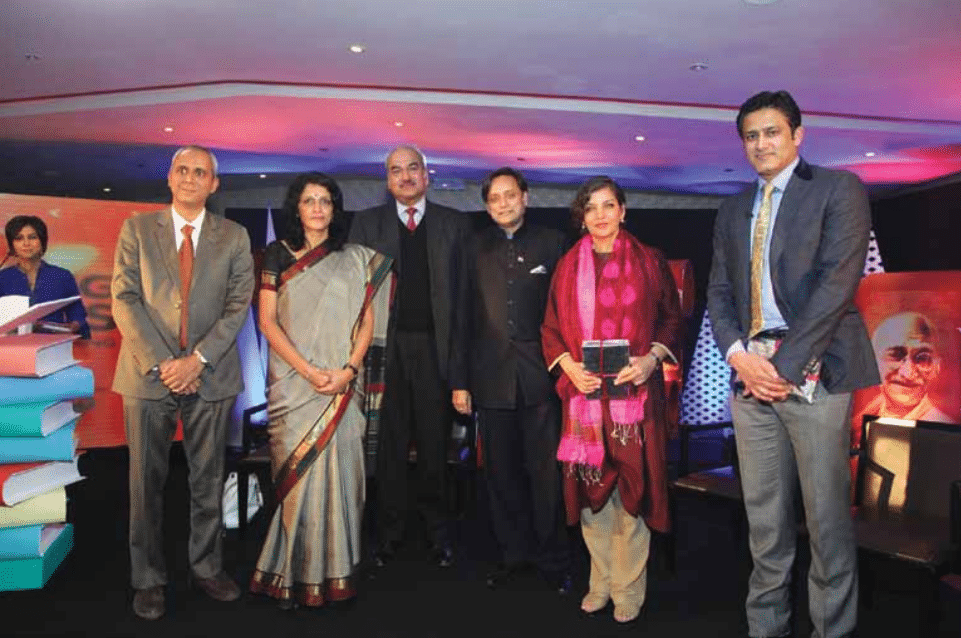
Dr Shashi Tharoor, Union Minister Of State for HRD, inaugurated the Pearson Teaching Awards in India
Pearson Education Services, the leading educational products and services provider, along with partner NDTV, hosted the first-ever teaching awards show on 22nd January, 2013 at New Delhi. The awards ceremony was presided over by Dr Shashi Tharoor, Union Minister of State for HRD. The gathering witnessed support from individuals belonging to various walks of life; from teaching professionals and academia, to knowledge leaders and education policy makers. Among other celebrities who attended were actor and social activist, Shabana Azmi, and legendary cricketer and Pearson brand ambassador, Anil Kumble.
“The response to the award ceremony has been overwhelming and encouraging. The awards have displayed the value and importance of teachers in our society. I would like to congratulate Pearson for their commendable effort in recognising teachers who give so much to the society and shape the minds of children, and in more ways than one, help build our future. I think this is just the beginning and we have a long way to go, but we have made a great start,” said Kumble.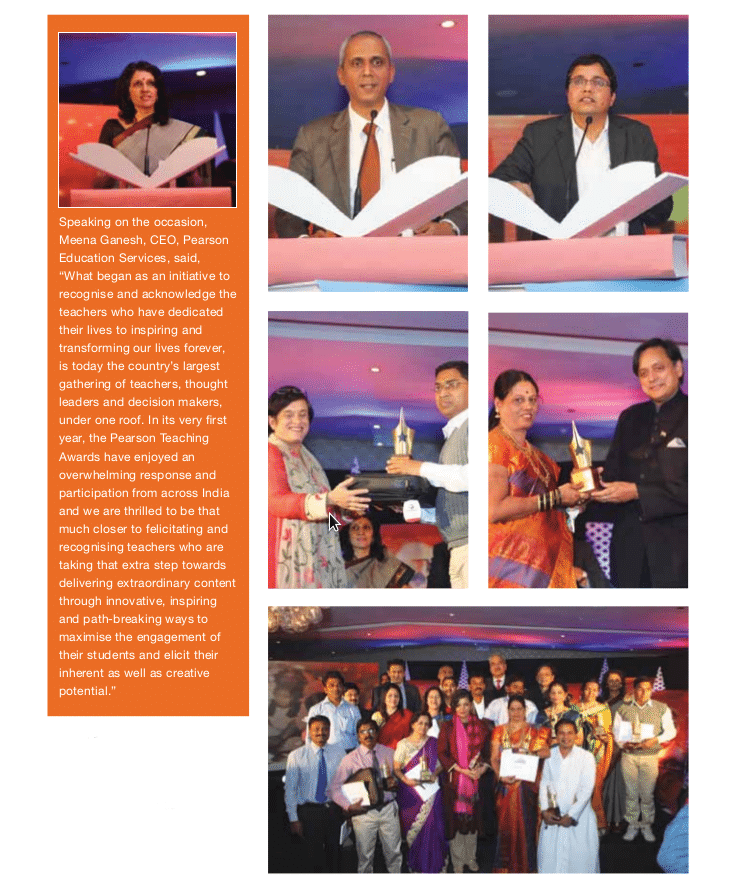
Nominations were invited under 20 categories: Excellence in Teaching in Government Schools, Excellence in Teaching in Private Schools, Best Pre-Primary/ Kindergarten Teacher, Outstanding Contribution to Special Children, Special Teacher, Innovation in School Teaching, Outstanding Performance in Social Contribution through Teaching, Teacher of the Year – Male, Teacher of the Year– Fe- male, and Jurors’ Distinction Award.
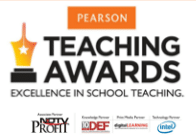 The background
The background
The Pearson Teaching Awards were conceptualised to celebrate the best of the teaching profession; the true heroes of the classroom who work tirelessly to teach, inspire, nurture and shape the future of not just students, but the entire nation.
The journey
- In July 2012, the idea was born. Pearson partnered with NDTV Profit to plan and execute the idea
- In July 2012, the Digital Empowerment Foundation, the founder of Manthan Awards, came on board as the Process Partners to handle the entire backend process of re- ceiving applications and shortlisted the finalists
- In August 2012, Intel joined hands with the initiative as the Technology Partner and digitalLEARNING as the Print Media Partner
- In September 2012, the awards were announced at the press conference in Bangalore in the presence of Pearson’s brand ambassador, Anil Kumble, addressing the media and declaring nominations open
- In October 2012, panel discussion on the topic “Is India ready to push the envelope on education?” aired on NDTV, which served as the curtain raiser to the awards on television
- The nominations were closed on 15th December, 2012. There were 1,900 applications received from across the country
- Finally, on 22nd January 2013, the Grand Finale was held with Dr Shashi Tharoor, MoS, MHRD, gracing the occasion as the chief guest
The process
Call for entries began on 15th September, 2012, and was supported by activities like press conference, promos on NDTV, and on-ground outreach to more than 20,000 schools via posters, EDMs and through telecalling. Applications accepted online through the NDTV website. There were 1,900 applications received at the end of the nomination period. An eminent panel of prejurists sifted through all the nominations and selected 75 finalists under 20 categories.
The winners
Best Pre-Primary Teacher – Govt School
G B Padamavathi, Govt Higher Primary School, Karnataka
Best Pre-Primary Teacher – Private School
Rajul Haresh Mehta, Pravrutti Vidyalaya Bal Bhavan, Gujarat
Innovation in School Teaching
Venkata Raghavendra Rao Rachuri, Jawahar Navodaya Vidyalaya, Andhra Pradesh
Outstanding Contribution to Special Children
Sumathi Ramjee, Deepika School, Karnataka
Outstanding Performance in Social Contribution through Teaching
Vasant Rathwa, Vidya Programme, Gujarat
Special Teacher (Differently-Abled)
G V S Nageswararao, Jawahar Navodaya Vidyalaya, Andhra Pradesh
Teaching Excellence in a Language – Govt School
Raju Vitthalrao Dhoke, Z P Upper Primary School, Maharashtra
Teaching Excellence in a Language -Private School
Sumandeep Thakur, Prakash Private School, Haryana
Teaching Excellence in Mathematics – Govt School
Dr Donnipad Manjunath, Kendriya Vidyalaya, Maharashtra
Teaching Excellence in Mathematics – Private School
Hira Prasad, Birla High School, Junior Section, West Bengal
Teaching Excellence in Science – Govt School
Karunaidoss, Government High School, Viswanatham, Tamil Nadu
Teaching Excellence in Science – Private School
Harshala Raghuram, The New Cambridge High School (ICSE), Karnataka
Teaching Excellence in Social Studies – Govt School
Sujatha Hegde, Govt High School, Karnataka
Teaching Excellence in Social Studies – Private School
Fr Dr Mathew Thengumpally, K E Carmel Central School, Kerala
Teaching Excellence in Sports – Govt School
Ramu, Calve College Government Higher Secondary School, Puducherry
Teaching Excellence in Sports – Private School
Kalidasan, P S Senior Secondary School, Tamil Nadu
Teacher of the Year – Female
G B Padamavathi, Govt Higher Primary School, Karnataka
Teacher of the Year – Male
Fr Dr Mathew Thengumpally, K E Carmel Central School, Kerala
Jurors’ Special Award
Sumathi Ramjee, Deepika School, Karnataka
National Academic Depository of India
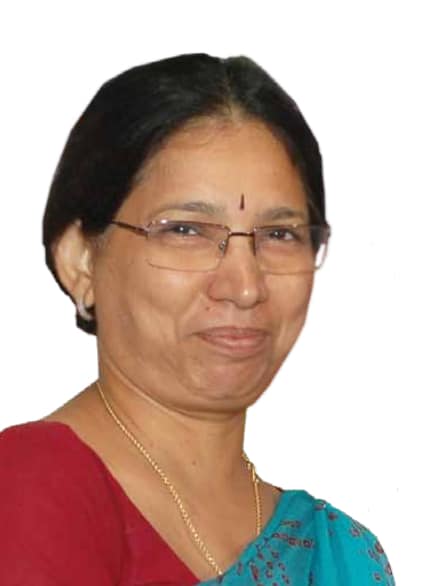 Dr Veera Gupta, Associate Professor, National University of Educational Planning and Administration, Delhi; Former Secretary, CBSE
Dr Veera Gupta, Associate Professor, National University of Educational Planning and Administration, Delhi; Former Secretary, CBSE
he National Academic Depository is a unique idea floated for the first time in India. The idea was initially floated to check fraudulent academic certificates and degrees. It also encompassed the idea that such a depository would help in consolidating an individual’s academic qualifications which the student may have earned throughout his life. The depository would be a storehouse of a person’s academic credentials. The credentials would also specify the level of qualifications and the quality of awarding institutions.
The need for a depository is magnified in the present context of skill development and National Vocational Educational Qualification Framework (NVEQF). The NVEQF proposes to draw parity between academic versus professional, and pre versus in-service qualifications offered by different recognised institutions. In case such a system is established, an individual can earn recognised qualifications all through his/her life through a formal or informal mode of education.
As per the information available, such a depository of academic qualifications does not exist in any country. The data with respect to the academic results of a candidate is generally stored in the respective awarding institutions. The qualification is verified by the awarding institutions and a certificate is issued on a unique water- mark paper by the awarding institution. The number of institutions is so large that unique watermarks of all the institutions cannot be recognised by the potential employers. As a result, the employer communicates with all the concerned institutions to verify the respective qualification of the candidates. At the same time, an individual also has to preserve his paper qualifications for five or more decades to be able to submit at different times of his/her working life.
unique watermarks of all the institutions cannot be recognised by the potential employers. As a result, the employer communicates with all the concerned institutions to verify the respective qualification of the candidates. At the same time, an individual also has to preserve his paper qualifications for five or more decades to be able to submit at different times of his/her working life.
The academic depository would be a recurring store of the qualifications earned by an individual from school to college level, and pre to in service level at one place. This will facilitate the employers to verify the credentials of the potential candidates. It would also facilitate an individual to accumulate, preserve and list all his/her qualifications at one place. A smart card of qualifications will also help the individual in presenting his credentials with just a swipe.
For the first time, the Ministry of Human Resource Development (MHRD) has floated an expression of interest for establishing a depository
of academic credentials. At the same time, it was thought that a bill on academic depository would help establish such a system in the country, which can mandate organisations as well as the processes of the depository. The data security is of paramount importance for such a depository. Therefore, it was decided to issue a tender to only two government financial depositories, which are registered with the Securities and Exchange Board of India (SEBI). These are the National Securities Depository Ltd (NSDL) and the Central Depository Securities Ltd (CDSL). The pilot project was conducted with the results of class XII and Central Teacher Eligibility Test (CTET) conducted by the board. There was data of more than ten lakh students.
The school principals were asked to use the depository and provide feed- back. The pilot was successful with both the agencies. The feedback of the project was given to the MHRD as an input to the draft bill on National Academic Depository. The bill proposes to make it mandatory for all the academic institutions to upload data in the depository. It also provides for safeguards for security of storage, access, and retrieval of records. It has added a few more functions such as issuance of duplicate certificate by the depository. There would be more authorised institutions other than academic institutions to act as agent on behalf of depository. Also, there would be stringent punishments if data is tempered with. The bill is yet to be finalised.
The bill is silent about cost recovery method by depositories. During the various discussions with NSDL and CDSL, it was suggested that the service could be free for students and academic institutions. The charges should be levied on employers and others who may use the service for verification purposes. The depositories would work on Build, Own and Operate (BOO) model.
The NAD has a few challenges to overcome. The first challenge is of number of accounts. In the present scenario where elementary and secondary education is going to be made compulsory, the number of students graduating from these institutions is going to be more than ten million. It is desirable that the academic depository may have to depend on UID/Aadhar for opening of new 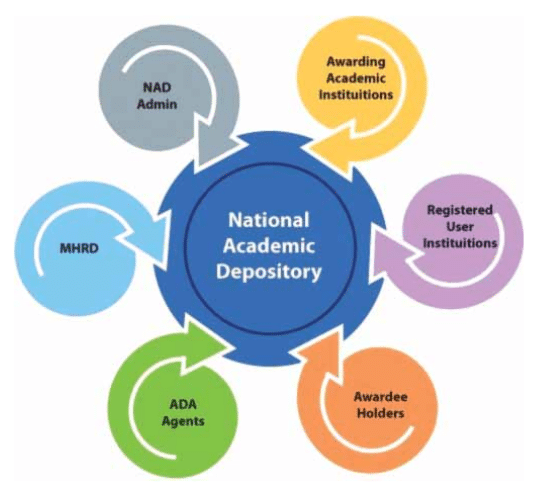 account.
account.
The second challenge is the num- ber of institutions in the country. The Knowledge Commission has recom- mended opening of 3,000 universities as against existing 400. The vocational mission recommends opening of one lakh vocational centres in the country during twelfth plan period.
All the institutions eventually need to get registered with the depository. The third challenge is parity of qualifications. At present, there are many training programmes offered outside the formal education system by the respective organisations for their employees. Recognition of all such programmes would benefit the individual and the educational planners. There are many challenges related to hardware, software, logistics and acceptance of depository. It needs collaborative efforts of the IT, education, planning, legal and media professionals. If planned meticulously and established successfully, the NAD would lead the world.
The Rise of Tablets
 Naveen Rajlani, Senior Vice President and Head – School Division, Pearson Education India, talks about the increasing role of tables in K-12 education in conversation with Pragya Gupta, ENN
Naveen Rajlani, Senior Vice President and Head – School Division, Pearson Education India, talks about the increasing role of tables in K-12 education in conversation with Pragya Gupta, ENN
How do you see the role of tablets in augmenting the delivery of education in the classroom and beyond?
Technology is playing a decisive role in the future of education today. As technology is advancing, it is being deployed to benefit students of all ages in the learning process. Technology used in the classrooms will help students under- stand and grasp information better. For example, some people are visual learners and projection screens linked to computers allow them to see and comprehend study material instead of simply listening to a teacher delivering a lecture. Tablets are the future of smart learning and have been able to capture a significant market share amongst the school-going children. They offer a platform that gives school children access to more effective, personalised and collaborative digital learning with rich digital content, 3D animations, quizzes and videos. Software can be used to supplement class curriculum. The digital programmes provide study questions, activities and even tests and quizzes for a class, thereby helping students continue learning outside the classroom.
Please share your experience with the schools with their hands on tablet?
Today’s school-going children are smarter and sharper than ever before. They want phones, laptops, tablets and other devices that are snazzy, cost-effective, eco-friendly, and in a way read their minds and understand their needs well. Our latest product, MX Touch, has the curriculum framework at its core while being a platform that offers interactive learning to students. It is a flexible combination of graded content and exciting new digital resources. Its assessment module personalises learning and analyses progress. It also helps reduce the burden of schoolbags as textbooks will now go digital. With MX Touch, we have brought the best of our global capabilities as well as our own ability in content development to India, thus living up to Pearson’s principle of efficacy and top-notch standard of education. This product has been used as a pi- lot in several schools and the experience and enthusiasm among the children has been over- whelming.
In the course of the pilots, we realised that children found the process of learning from tab- lets quite enjoyable and felt that the variety of media resources, like presentations and animations, helped them understand better. The class- rooms became more interactive through the use of tablets, and even at home, children could easily recapitulate what they had learnt since they could access digital resources over and over again. The mo- bile experience of learning was enjoyed by students everywhere while teachers and the school administration admired the ease at which assessments could be conducted and analytical reports could be generated and shared.
What are the five things schools can expect from tablets in the year 2013?
First, schools can expect a user friendly device that will help teachers personalise the learning process for students keeping in mind the diversity of learning types in any classroom. Second, they can expect smoother processes of evaluation, thanks to the assessment module that allows teachers to generate pop quizzes and home assignments as well as test papers for groups of students and individuals. The assessment module will also help teachers generate reports that analyse a student’s performance in comparison with his own past assessments as well as in perspective to the rest of the class. Third, they can expect classrooms to become more interactive and focussed as tablets take into account the needs of large classrooms, and allow teachers to lock students’ access to anything but the text or the resource in discussion. Fourth, they can expect tools that facilitate administration like message boards that allow parents and teachers to interact, records of attendance and calendar of events. Last, they can expect a cost-friendly, eco- friendly mobile learning experience.
Please share your plans for the Indian education segment? What kind of products are you planning to launch for the education sector?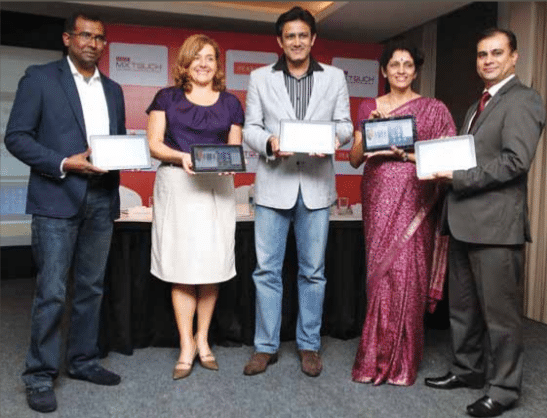
The Indian education industry is very versatile. Information and communication technologies are playing a pivotal role in transforming the method of imparting education today. Interactive whiteboards have become common in school classrooms and the popularity of online courses is helping improve access and quality of education. Indian education space has surely embraced technology with unbridled enthusiasm and will continue to do so in the times to come. Pearson is at the forefront of technology and innovation.
Pearson has come to be perceived as an agent of change, thanks to the pioneering products we have launched over the last many years. We were the first to integrate technology in a pedagogically sound fashion. Starting with e-Books that acted as audio-visual aids to teaching, we moved on to ActiveTeach, which introduced blended learning at its best to Indian schools. Our latest offering is MX Touch – pedagogically sound textbook content loaded on a tablet with digital re- sources strategically embedded so that the teacher in the classroom, and the student while studying at home, is aware of how to progress in a logical fashion from one topic to the next without getting lost in a sea of content.
Please tell us more about MX Touch.
MX Touch-ActiveTouch variants are available in 7- and 10-inch tablets from our preferred tablet manufacturers, Samsung and Micromax. These tablets have been affordably priced keeping the interest of the learners at the forefront. It is available in the following versions: MX Touch – ActiveTouch, MX Touch – DigitALly and MX Touch – Ultimate. MX Touch – ActiveTouch has pedagogically sound, graded digitised textbooks already loaded on the tablet. ActiveTouch is available in four subjects — English, Science, Mathematics and Hindi — for classes 3 to 8. Engaging animations, captivating videos from BBC Motion Gallery, and a host of interactive activities and worksheets will help the teacher add to their lessons. ActiveTouch instantly cuts the environmental impact of printing multiple textbooks and helps avoid the hassle of carrying a huge number of books to school. MX Touch – DigitALly is loaded with DigitALly Student Edition, another edition of Pearson’s patented and award-winning teaching tool. DigitALly includes animations, videos, self-explanatory diagrams, worksheets, quizzes and several hours of experiments for different subjects designed to make the learning more engaging. MX Touch – DigitALly SE (student edition) can house an entire curriculum of a grade on a device and offers access to it not only in the classroom, but also outside and at home. MX Touch – Ultimate is a bundled version that includes MX Touch – ActiveT- ouch and MX Touch – DigitALly SE.
Knimbus ropes in Kunwar Asheesh Saxena as VP
Kunwar, as Director – Technology Development, has been the driving force behind mercurial growth of MakeMyTrip before joining Knimbus
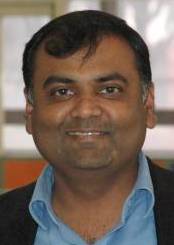 New Delhi: Knimbus, a cloud based information search and collaboration platform that connects creators and users of Scientific, Technical and Medical (STM) knowledge, has appointed Kunwar Asheesh Saxena as Senior Vice President – Product Development & Engineering.
New Delhi: Knimbus, a cloud based information search and collaboration platform that connects creators and users of Scientific, Technical and Medical (STM) knowledge, has appointed Kunwar Asheesh Saxena as Senior Vice President – Product Development & Engineering.
Asheesh assumes this leadership position at Knimbus following an exceptional tenure with MakeMyTrip as Director – Technology Development.
Asheesh has over 14 years of experience in strategic planning, development and integration of enterprise systems. In his previous roles, he has been responsible for setting up the technology roadmap and strategy for diverse business channels.
During this tenure, he implemented solutions for high transactions sites in multi-data-centre distributed architecture with latest Big Data technologies like SOLR, Cassandra and many more.
His international experience in delivering solutions to organizations like EDS, Lastminute.com, Accovia, Zuji, British Midland and the Dubai Government is likely to contribute to Knimbus’s ongoing engineering and development efforts.
“We are very pleased to welcome Asheesh to the Knimbus team and owner circle. He is an excellent addition to lead our future efforts given his extensive experience in building online products which delivered a delightful user experience and scaled to millions of visitors”, Knimbus Founder & CEO Rahul Agarwalla said.
A one-stop research hub, the Knimbus platform has been enabled in over 700 institutions/organizations and is being accessed by over 65,000 researchers at major Academic and Research institutions, such as the IITs, IISERs, CSIR Labs, CDOT, CDAC and various State and Central Universities.
The Right to Misinform, an Obligation to Keep Secrets, Frittering Away 10,000 crores, and Other Such Tales!
Manish Upadhyay, Co-Founder & Chief Evangelist, LIQVID; AmitavaMaitra, Independent Ed Tech Consultant
Between us, we have more over 30 years of experience in the field of technology aided and enabled education. Fuelled by the desire to see and evaluate the application of technology in the school and higher education in the government owned and operated schools and institutes in India, we decided to look for data on the efficacy of ICT interventions. Though we searched long and hard, we could find nothing on the MHRD web- sites. To add to our agony, we found many crucial links did not work. We then decided to use the “brahamastra”, an RTI application. We thought that a simple application would do it. Enthused by the idea we looked up the process – it was simple – a `10 postal order and the list of questions to be sent to the Public Information Officer. But that is where things got complex. The MHRD web- site left us clueless as to whom to send the RTI application. There seemed to be a lot of divisions within the MHRD that seemed to be having something to do with school and higher education and ICT interventions. It was not clear as to who exactly did what. We decided to bite the bullet and thus, sent RTIs to all, hoping that our respondents will do their bit.
And thus began the next phase, the wait and the watch game. Some weeks later, we received the first shock. From most of the people, we got answers saying that we had addressed the postal order to the wrong person. It was to be in favour of the Pay and Accounts officer (PAO) and not the PIO. Apart from polite, terse and very official sounding letters, we did not get any relevant information save for the communication about our errant ways.
The world over, educational interventions, ICT or otherwise, are judged by forming two groups – one an experimental group and one control group involving statistically equivalent populations, and then objective measures on student performance as assessed through standard tests are used as key parameters to judge the efficacy of interventions
The notable exception was a PIO who bucked the trend and actually answered some of our questions (even on an inaccurate postal order). We even had the privilege of receiving a letter from a PIO in the PMO telling us that he was forwarding our RTI application to someone in 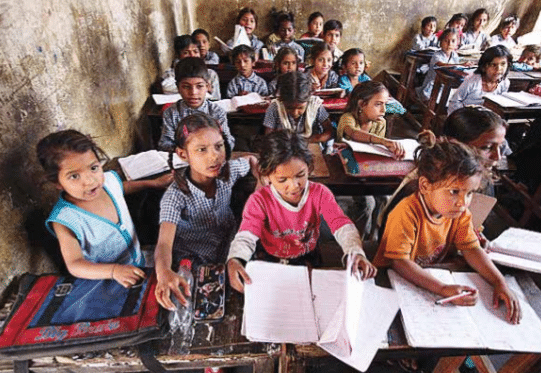 the MHRD, even though we had not sent any RTI to the PMO. Anyhow, undeterred, we sent postal orders in favour of the PAO and waited with baited breath. However, from all but one PIO we paid glowing tribute to, we got terse messages telling us that ‘no such information exists’ (the only response we got was from a mysterious sounding part of MHRD called “Schools-5 Section, Department of School Education & Literacy”). The PIO stated that evaluation reports for ICT interventions exist for four states in India and that by large these reports indicated the results were satisfactory or good. Intrigued and fascinated, we then sent an RTI report asking for copies of the four evaluation reports. We were then told that the reports did not exist in electronic form and so we would have to pay `292 to get xerox copies of the same. Again, we remained true to the cause and sent the Indian Government the money to photocopy the pages. And finally, six months later, we were in the possession of some relevant, concrete information. Curiosity had landed on Mars and we gave each other high fives.
the MHRD, even though we had not sent any RTI to the PMO. Anyhow, undeterred, we sent postal orders in favour of the PAO and waited with baited breath. However, from all but one PIO we paid glowing tribute to, we got terse messages telling us that ‘no such information exists’ (the only response we got was from a mysterious sounding part of MHRD called “Schools-5 Section, Department of School Education & Literacy”). The PIO stated that evaluation reports for ICT interventions exist for four states in India and that by large these reports indicated the results were satisfactory or good. Intrigued and fascinated, we then sent an RTI report asking for copies of the four evaluation reports. We were then told that the reports did not exist in electronic form and so we would have to pay `292 to get xerox copies of the same. Again, we remained true to the cause and sent the Indian Government the money to photocopy the pages. And finally, six months later, we were in the possession of some relevant, concrete information. Curiosity had landed on Mars and we gave each other high fives.
For those of you who are befuddled by the sequence of events here’s the upshot. The Indian Government has planned to spend over 10,000 crores** on ICT in schools and higher education institutes with the belief that this would benefit teachers and students (we presume rightly or wrongly that other people were not the intended beneficiaries of these projects). Now, to verify this conjecture, the government decided to test it doing impact assessment or evaluation studies in four states only across approx 120 odd schools. The evaluation of ICT initiatives in Punjab was conducted by a leading engineering college there and that in Sikkim was conducted by a regional engineering college there. The two reports were essentially hard- ware audits and informed the reader what hardware was procured in contrast with what was ordered and in the various stages of disrepair they were in. * * `5,000 crore is being provided during the Eleventh Plan for providing ICT infrastructure in schools and another provision of `5,000 crore has been made in the Eleventh Five-Year Plan for ‘Education Mission through ICT’ for higher education institutes.
In Europe and many other developed nations, in addition to student performance in standard tests of achievement, ‘inspectors’ observe and evaluate school processes and procedures impartially to determine how a school is performing on parameters such as ICT implementation and integration
The evaluation report of schools in Meghalaya was conducted by a leading government institute in Shillong and was a voluminous one which covered everything from the history and geography of Meghalaya to the tribal nature of the population there. With over 90 percent of this large report (for which we had paid money) devoted to esoteric trivia, the last 10 percent or so declared that all was, by and large, well in the state of Meghalaya with minor points of improvement. Another leading private institute in Manipal conducted the evaluation of ICT interventions in schools in Kerala. This report also relied totally on qualitative opinions based on self-assessment based questionnaires. Overall, the four reports were well below par. While the world over educational interventions, ICT or otherwise, are judged by forming two groups – one an experimental group and one control group involving statistically equivalent populations, and then objective measures on student performance as assessed through standard tests are used as key parameters to judge the efficacy of interventions. In stark contrast, the reports made no such attempt.
In Europe and many other developed nations, in addition to student performance in standard tests of achievement, ‘inspectors’ observe and evaluate school processes and procedures impartially to determine how a school is performing on parameters such as ICT implementation and integration. As opposed to that, the reports looked at self-reportage – answers to questionnaires populated by the very people whose performance was being studied. Very dubious, to say the least
We started off by examining the rigour of evaluation studies in ICT projects in school education. Though we must admit that we were dismayed at the state of affairs, we are far more dis- appointed at the process of finding data and information. From the difficulty in getting information through RTIs, to the fact that though we got photocopies of obviously neatly word processed documents, we could not get hold of electronic versions of the same, the situations looks rather bleak. And even more critical, while all this information could have been proactively put online by the MHRD as part of the ‘Duty to Publish’ charter of the RTI which mandates the Indian Government to proactively publish information on its websites, we had to wage a long battle of sorts to get relevant information (the word relevant is
loosely used here).
Much hue and cry has been made over corruption in the government machinery. But, little attention is given to the colossal inefficiencies in the system as our experience with both the RTI process and the rather inferior quality of evaluation reports indicates. There is obviously a correlation between inefficiency and corruption, but we believe both need to be fought with equal zeal. As ordinary, concerned citizens, we have a duty to keep up the pressure.
MP has an Edge Over Others in RTE
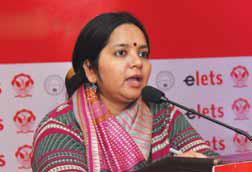 There will be difficulty in the implementation of the RTE Act initially, but things will streamline and will yield expected result soon, says Rashmi Arun Shami, Commissioner-cum-Director, Rajya Shiksha Kendra (RSK) & Ex-Officio Secretary School Education, Government of Madhya Pradesh, in conversation with Mohd Ujaley
There will be difficulty in the implementation of the RTE Act initially, but things will streamline and will yield expected result soon, says Rashmi Arun Shami, Commissioner-cum-Director, Rajya Shiksha Kendra (RSK) & Ex-Officio Secretary School Education, Government of Madhya Pradesh, in conversation with Mohd Ujaley
How do you ensure that every child gets value-based education from the elementary level?
We strongly believe that education should not be only learning concepts. Fundamentally, it should be ensuring that the values of the constitution are imparted to all children. Value-based education is very important if we want to have good citizens. Therefore, we try to incorporate it in our curriculum in an interesting way so that the children learn it at every step of their schooling.
Please tell us about the level of implementation of ICT in MP’s schools.
Since most of the schools are in remote areas, we have to adopt technology in order to ensure quality. We are starting smart classes where a good teacher from a school will address students of other schools which will be network connected. We also have a system called head start which is also working very well.
We are also looking at other technologies like satellite-based education for schools so that the shortage of quality teachers and lack of good resources is addressed.
What initiatives are you taking to enhance the quality of education?
Earlier, the government’s priority was enrollment, but now, access is nearly universalised. Therefore, the emphasis now is on quality. We are making sure that we have more and more training programmes for our teachers’ capacity building. In these programmes, we will first make sure that they understand the curriculum well; second, we will try to build their capacity in terms of interaction in classroom; and lastly, develop leadership quality in our principals and head teachers so that they can run the institutions in a better way.
What was the major initiative your department took last year and what are the future plans for school education in Madhya Pradesh?
A lot of work was done in this regard in 2012. The most interesting was the Chief Minister’s direction to us to ensure quality in education. Therefore, we ensured that all government schools improve their quality. Now, every district is working on its own academic improvement plan based on its needs. We are implementing it from this year onward. They will take initiatives based on their
requirement while also ensuring delivery of results.
We have also started life skills education for adolescent girls. We have started Meena Radio with UNICEF that all adolescent girls listen to in school for 15 minutes and discuss the content of the programme in the next 15 minutes. There are also a lot of programmes for school children that are aimed at keeping up their interest in academics.
Although the Right to Education Act has come into effect, the private schools have not responded the way the government expected. Does that worry you?
Madhya Pradesh can take great pride in RTE because as compared to the rest of the country, our private schools have been very generous. We are the only state in the country which got an enrollment of 1,38,000 last year, and an equal number of students have been enrolled in our private schools too in the current year.
I understand that there are problems in some schools, particularly in English medium schools, because they insist on speaking English in the school and children from disadvantaged backgrounds face problems in integrating in the initial few months. We have made special efforts to ensure that children feel comfortable in the schools and at times, arrange extra classes for them to understand things better.







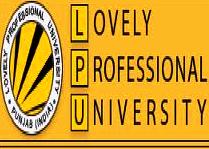
 New Delhi: To improvise and sensitize the fundamental education pattern in schools, Lovely Professional University(LPU) has taken up new corporate social responsibility(CSR), under its project Disha, to empower school teachers for new teaching pedagogy.
New Delhi: To improvise and sensitize the fundamental education pattern in schools, Lovely Professional University(LPU) has taken up new corporate social responsibility(CSR), under its project Disha, to empower school teachers for new teaching pedagogy.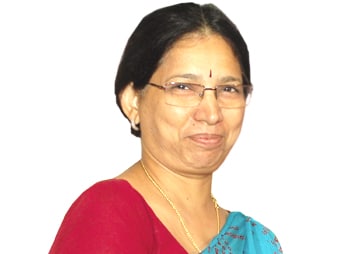


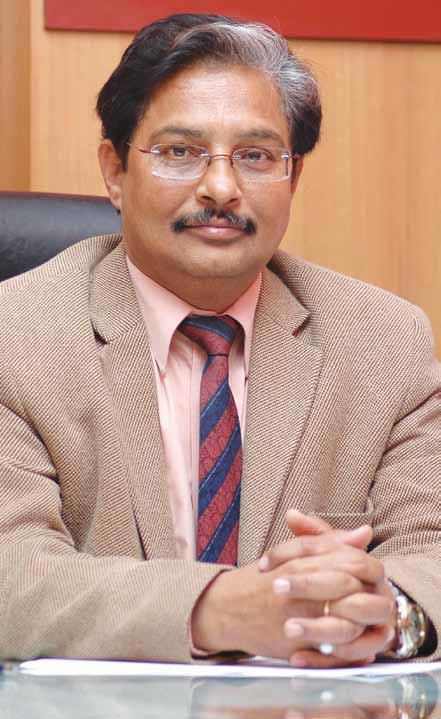 Dr Ashwini Kumar Sharma, Managing Director, National Institute of Electronics and Information Technology (NIELIT), sheds light on the range of initiatives being taken by the organisation to promote digital literacy in the country
Dr Ashwini Kumar Sharma, Managing Director, National Institute of Electronics and Information Technology (NIELIT), sheds light on the range of initiatives being taken by the organisation to promote digital literacy in the country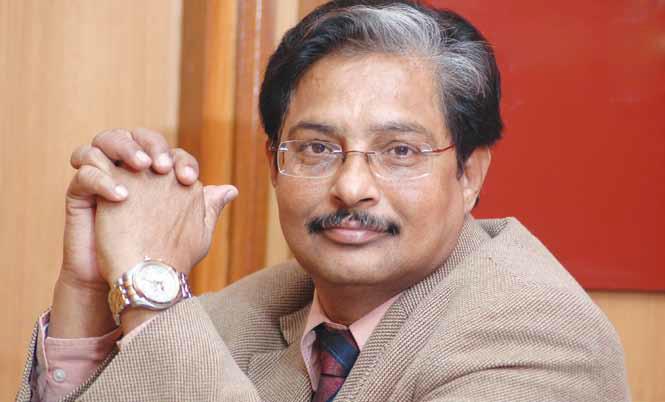 “We are making efforts to use the infrastructure created under National Knowledge Network (NKN) by NIC”
“We are making efforts to use the infrastructure created under National Knowledge Network (NKN) by NIC”











